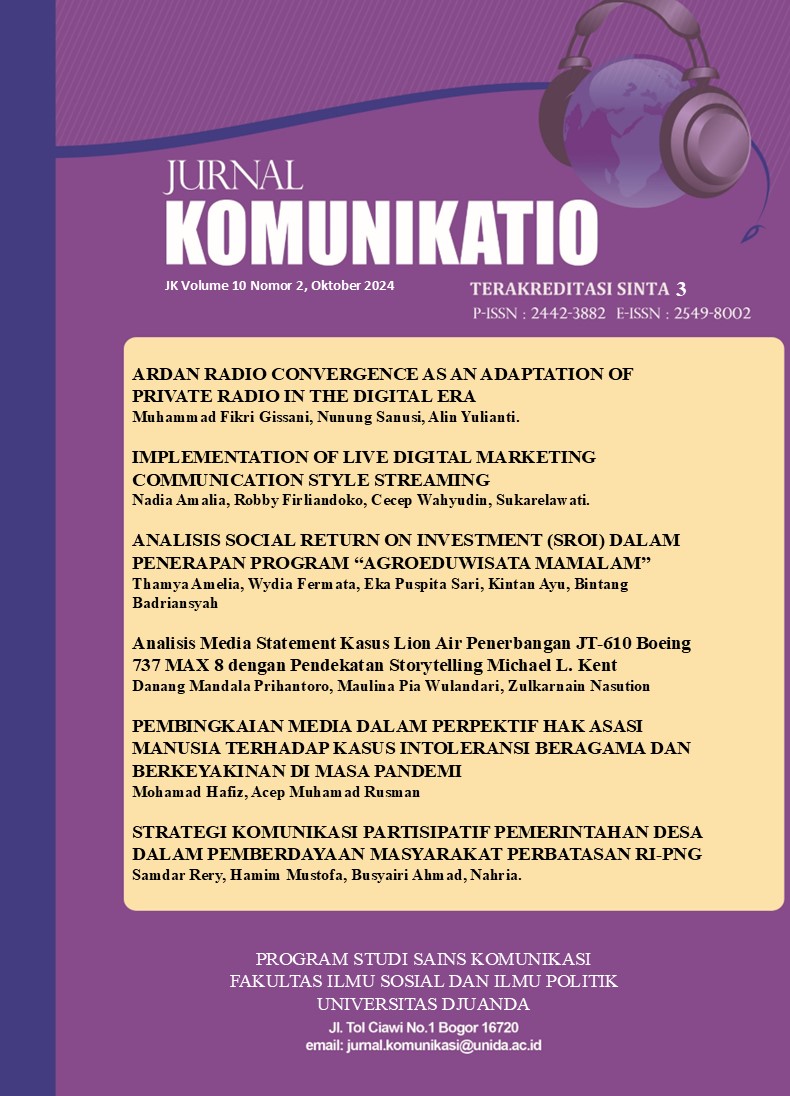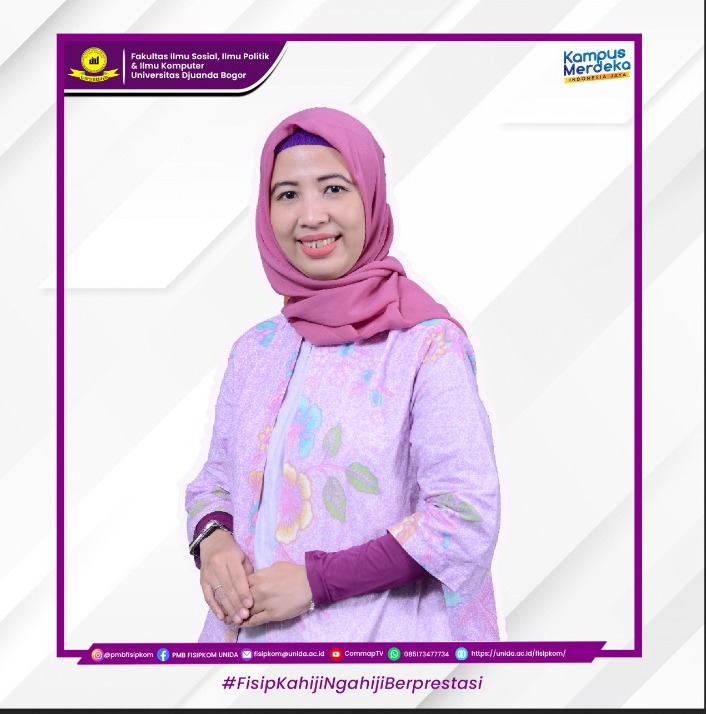Analisis Social Return On Investment (Sroi) Dalam Penerapan Program “Agroeduwisata Mamalam”.
DOI:
https://doi.org/10.30997/jk.v10i2.13452Keywords:
Agroedu-tourism, Corporate social responsibility (CSR), Social return on investment (SROI)Abstract
This research aims to measure the impact of implementing the Manak Mandiri Man Alam (Mamalam) Agro-tourism Program, which is a CSR initiative from PT ANTAM Tbk UBPB West Kalimantan. This program is designed to provide social responsibility to society and the environment through the integration of agricultural activities with education and tourism. The analysis was carried out using the Social Return on Investment (SROI) method to evaluate the resulting social, economic and environmental impacts. In this research, primary and secondary data were collected to evaluate program input, output and outcomes and quantify the resulting social value. The results of the SROI calculation show a ratio of 2.32, which means that every Rp. 1 invested by ANTAM in this program produces Rp. 2.32 in economic, social and environmental benefits. This SROI value confirms that the various activities that have been carried out have been well planned, targeting the right targets, and the targets to be achieved are linear with the planned activities. These findings demonstrate the success of the program in providing a significant positive impact on society. Apart from that, the results of this research also provide a valuable reference for the development of similar programs and strategic decision making for stakeholders, strengthening the argument for continuing to support initiatives oriented towards community empowerment and environmental preservation.
References
Mellita, D., & Elfanso, E. (2020). Model Lewin dalam Manajemen Perubahan Teori Klasik menghadapi Disrupsi Lingkungan Bisnis. MBIA, 265-262.
Mellita, D., & Elpanso, E. (2020). Model Lewin dalam Manajemen Perubahan: Teori klasik menghadapi disrupsi dalam lingkungan bisnis. MBIA, 2655-8262.
Purwohedi. (2016). Social Return on Investment (SROI) Sebuah Teknik untuk Mengukur atau Dampak dari sebuah Program . Yogyakarta: Leutika.
Social Value UK. (2012). Retrieved from https://socialvalueuk.org/resources/a-guide-to-social-return-on-investment-2012/
Social Venture Australia. (2021). Retrieved from https://www.socialventures.com.au/sva-quarterly/social-return-on-investment-accounting-for-value/.
Sugiyono. (2006). Metode Penelitian Kuantitatif dan Kualitatif. Bandung: Alfabeta.
Downloads
Published
How to Cite
Issue
Section
License
Copyright (c) 2024 JURNAL KOMUNIKATIO

This work is licensed under a Creative Commons Attribution-ShareAlike 4.0 International License.
Authors who publish with Jurnal Komunikatio agree to the following terms:
- Authors retain copyright and grant the journal right of first publication with the work simultaneously licensed under a Creative Commons Attribution 4.0 International License that allows others to share the work with an acknowledgement of the work's authorship and initial publication in Jurnal Komunikatio.
- Authors are able to enter into separate, additional contractual arrangements for the non-exclusive distribution of the journal's published version of the work (e.g., post it to an institutional repository or publish it in a book), with an acknowledgement of its initial publication in Jurnal Komunikatio.
- Authors are permitted and encouraged to post their work online (e.g., in institutional repositories or on their website) prior to and during the submission process, as it can lead to productive exchanges, as well as earlier and greater citation of published work











